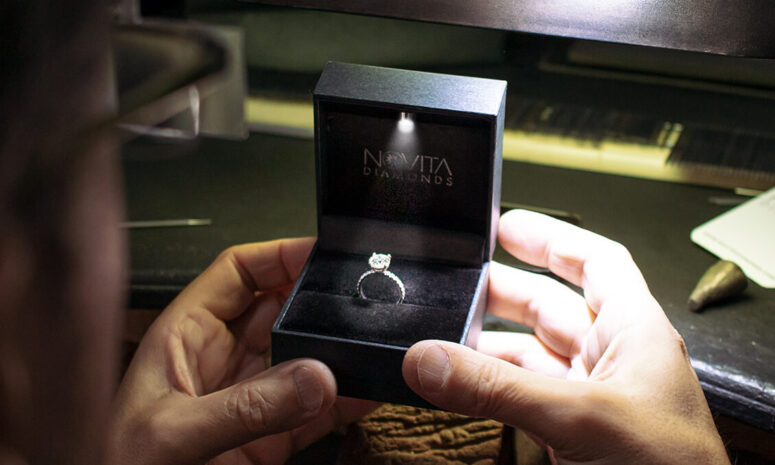
As people become more aware of the negative impact of diamond mining on the environment and communities, many are turning to lab-grown diamonds as a more sustainable and ethical option. Brisbane, the capital city of Queensland, is home to a number of jewelers that offer lab-grown diamonds as an alternative to natural diamonds. In this article, we explore what lab-grown diamonds are, how they are made, and the benefits they offer.
lab-grown diamonds?
Lab-grown diamonds, also known as cultured or synthetic diamonds, are created in a laboratory setting using advanced technology. They have the same physical and chemical properties as natural diamonds, and are made of pure carbon, but are produced in a matter of weeks rather than millions of years.
How are lab-grown diamonds made?
There are two main methods used to create lab-grown diamonds: High Pressure-High Temperature (HPHT) and Chemical Vapor Deposition (CVD).
In the HPHT method, a small diamond seed is placed in a chamber with a carbon source and a metal catalyst. The chamber is then subjected to extremely high temperatures and pressures, causing the carbon atoms to bond and form a new diamond crystal around the seed.
In the CVD method, a diamond seed is placed in a chamber with a gas mixture of hydrogen and carbon. The gas is ionized, creating plasma that breaks down the hydrogen and carbon molecules. The carbon atoms then bond to the diamond seed, forming a new diamond crystal.
Both methods produce diamonds that are identical to natural diamonds in terms of their physical and chemical properties. However, lab-grown diamonds can be produced in a matter of weeks, while natural diamonds take millions of years to form.
The benefits of lab-grown diamonds
There are several benefits to choosing lab-grown diamonds over natural diamonds. Firstly, lab-grown diamonds are more sustainable and ethical. The mining of natural diamonds is often associated with environmental damage and human rights abuses, including forced labor and child labor. By choosing lab-grown diamonds, consumers can ensure that their jewelry is produced without harming the environment or exploiting workers.
Secondly, lab-grown diamonds are more affordable than natural diamonds. The cost of producing lab-grown diamonds is much lower, as they can be produced in a matter of weeks rather than millions of years. This means that lab-grown diamonds can be sold at a lower price point without sacrificing quality.
Finally, lab-grown diamonds are just as beautiful and durable as natural diamonds. They are indistinguishable to the naked eye and can be cut and polished to the same high standards as natural diamonds. This means that consumers can enjoy the same level of luxury and quality without the ethical and environmental concerns associated with natural diamonds.
Lab-grown diamonds in Brisbane
Brisbane is home to a growing number of jewelers that offer lab-grown diamonds as an alternative to natural diamonds. One such jeweler is Xennox Diamonds, which offers a range of lab-grown diamond engagement rings and other jewelry pieces. Their lab-grown diamonds are ethically sourced and certified by reputable organizations such as the Gemological Institute of America (GIA).
Another jeweler offering lab-grown diamonds in Brisbane is The Diamond Jewellery Studio. They offer a range of lab-grown diamond engagement rings and other jewelry pieces, all of which are created with ethically sourced lab-grown diamonds. They also offer a bespoke design service, allowing customers to create their own unique piece of jewelry.
Conclusion
Lab-grown diamonds are a sustainable and ethical choice for consumers who are concerned about the environmental and ethical impact of diamond mining. Brisbane is home to a number of jewelers that offer lab-grown diamonds UK, providing consumers with a more responsible option for their engagement rings and other jewelry pieces.




